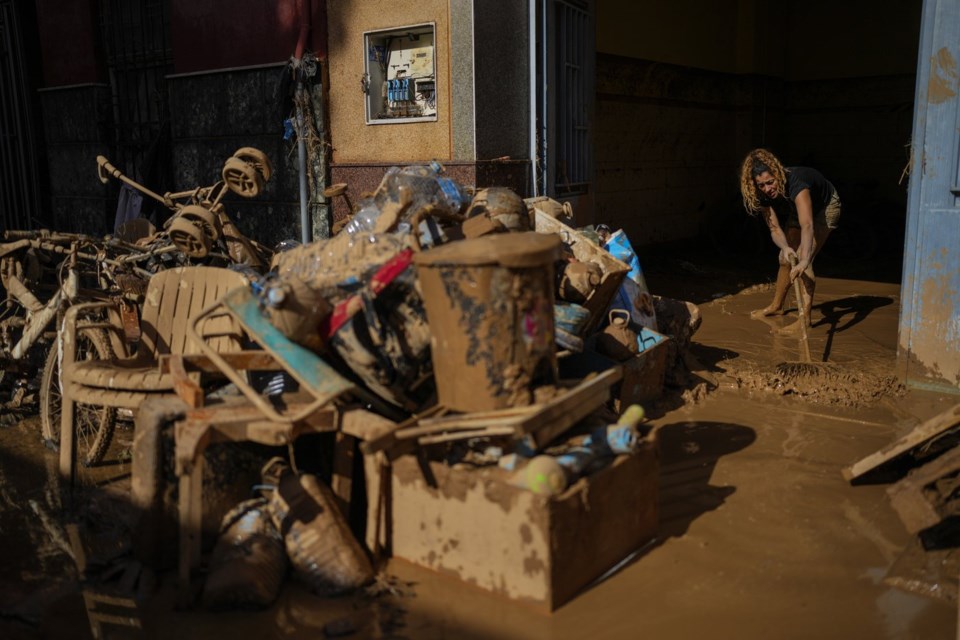BARRIO DE LA TORRE, Spain (AP) — Moments after rushing waters burst through the door to her home, Mari Carmen Pérez received a text message alert from regional Spanish authorities warning her of the possibility of flash floods.
By the time PĂ©rez's phone buzzed, the water has already gushed into her kitchen, living room and bathroom, forcing her and her family to flee upstairs.
“They didn’t have any idea of what was going on,” Pérez, a 56-year-old cleaner, said Thursday by phone from Barrio de la Torre in Valencia. “Everything is ruined. The people here, we have never seen anything like this.”
She was one of the lucky ones. More than , many trapped in cars or the ground floor of their homes, when storm-fed riverbeds burst their banks and swept through dozens of localities on the southern outskirts of Valencia city.
The massive number of dead — easily making the floods the worst natural disaster in Spain in living memory — has raised questions about how this could happen in a European Union country that excels in public safety.
As rescuers continued to pull bodies from the mud and debris Thursday, anger also began to grow among the families and friends mourning lost loved ones and many more thousands whose livelihoods have been shattered by the deluge. The streets were full of people walking to procure basic supplies with their cars ruined and the streets undrivable because of the mud and debris.
The Valencian regional government is being criticized for not sending out flood warnings to mobile phones until 8 p.m. on Tuesday, when the flooding had already started in some places and well after the national weather agency issued a red alert indicating heavy rains.
Valencia regional President Carlos Mazón, of the conservative Popular Party, defended his administration’s management of the crisis, saying “all our supervisors followed the standard protocol” that was coordinated by Spain’s central government.
Spain’s Interior Ministry said in a statement that regional administrations are responsible for sending alerts to warn the population of possible flooding and other natural disasters.
Mazón is also under fire for his announcement at 1:00 p.m. on Tuesday that the storm front would “lose strength” by 6:00 p.m. The opposite occurred.
The size and violence of the extreme weather event was shocking and extremely difficult for any administration to prepare for and predict. But Valencia, on Spain’s Mediterranean coast, that produce floods, albeit at a smaller magnitude than this monster of a storm.
Spain’s national weather agency had alerted officials and the public via its website and social media on Sunday, two days before the tragedy struck, that there was a 70% chance of torrential rain ahead.
The agency then issued a red alert, the highest level of warning, for bad weather as early as 7:30 a.m. on Tuesday morning as the disaster loomed.
Andreu Salom, mayor of the Valencian village of L’Alcudia, told national broadcaster RTVE that his town lost at least two residents, a daughter and her elderly mother who lived together, and that police were still searching for a missing truck driver.
He complained that he and his townsfolk had no warning of the disaster that struck when the Magro River overflowed.
“I myself was on my way to check the river level because I had no information,” Salom said. “I went with the local police but we had to turn back because a tsunami of water, mud, reeds and dirt was already entering the town.”
___
Wilson reported from Barcelona, Spain.
Alberto Saiz And Joseph Wilson, The Associated Press




